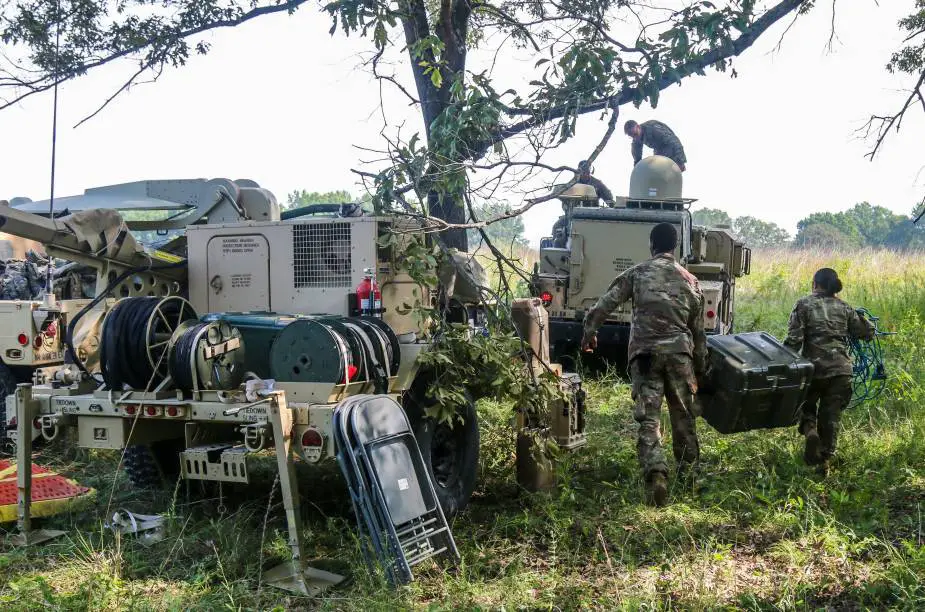Breaking news
101st Airborne tests new system to increase command post mobility.
Soldiers from Headquarters and Headquarters Company, 3rd Brigade Combat Team, 101st Airborne Division (Air Assault), conducted a Command Post Modernization Operational Assessment July 22-26, at the Kinnard Mission Training Complex on post. Spc. Andrea Notter, 40th Public Affairs Detachment, reports.
Follow Army Recognition on Google News at this link

Soldiers from Headquarters and Headquarters Company, 3rd Brigade Combat Team, 101st Airborne Division (Air Assault), conduct a Command Post Modernization Operational Assessment July 22-26, at the Kinnard Mission Training Complex, Fort Campbell, Ky. (Picture source: U.S. Army/Sfc. Jacob Connor, 101st Public Affairs Office)
Command Post Integrated Infrastructure, better known as CPI2, is a major modernization line of effort. It integrates emerging technologies and capabilities with mobile mission command platforms and command post support vehicles as a means of increasing agility and improving survivability on the battlefield. “CIP2 will help units succeed in combat by providing mobility of the command post and getting after the signature aspects, like the electromagnetic and physical signature by reducing the number of vehicles and providing the workspace for units to be successful in their mission set,” said Lt. Col. Jeremy Rogers, product manager for CPI2.
The previous program that CPI2 is attempting to replace typically took between four and eight hours to set up and displace, says Rogers. The goal is to reduce this time down to approximately 30 minutes.
Utilizing this program has knocked placement and displacement times down to between an hour and an hour and a half, approximately 80% faster than before. This is done by reducing the footprint that the tactical command post, or TOC, normally creates. “The TOC tents that we were used to in the past were a large footprint,” said Staff Sergeant Michael Prater, operations and plans Noncommissioned officer for 3 BCT and battle NCO for the operation. “This is a more mobile, smaller, diverse footprint that creates a better way of getting into the fight and getting out of the fight.”
Prater’s focus, as the operational NCO, has been teaching the Soldiers, officers and other NCOs of his unit how to use, set up and tear down the equipment, focusing on increasing efficiency over time.
Being more mobile enables Soldiers to move, shoot and communicate with the efficiency they need to accomplish the mission. So far, other units that have tested this innovative system include, 2nd Stryker BCT, 2nd Infantry Division; and Headquarters, 4th Infantry Division, each with different command post configurations. “As we take the unit feedback from both of our operational assessments, it will help inform not only our future requirements, but the baseline of the command post moving forward,” said Rogers.
Spc. Lance Lee, brigade air defense valve management systems operator for HHC, 3 BCT, says that CPI2 makes his life a lot easier because he is able to fall in on a pre-made shelter with network connectivity ports already allotted to him, eliminating time previously spent searching for a spot on the switch. “CPI2 is a valuable asset for us because we're able to fall in on an experimental software location where we can try new ideas, and essentially game plan to create new ways for us to affect the fight for the brigade commander,” said Lee. “I serve in the Army to make a difference, to innovate, and to get out there and try to find a new solution to currently existing problems. If I can be at the forefront of finding something that can affect the fight for the future, then I will be.”



















